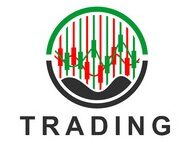As a contractor or subcontractor, complying with Davis-Bacon certified payroll requirements can be a challenging task. This federal law mandates that construction workers on federally funded projects receive “prevailing wages” and fringe benefits that are specific to the geographic region where the project is located. Failure to comply with Davis-Bacon regulations can lead to legal trouble, fines, and loss of reputation. Here are some tips to help you stay compliant and avoid potential problems.
Understanding Davis-Bacon Certified Payroll
Davis-Bacon certified payroll is a specific type of payroll report that contractors and subcontractors must submit when working on federally funded construction projects. The report details the hourly wage rate, fringe benefits, and other compensation given to each worker on the project. The information in the report must be accurate and verifiable, as it is used to ensure that workers are being paid the prevailing wage rate for their particular trade and location.
Davis-Bacon Fringe Benefits
One of the most important components is Davis-Bacon fringe benefits. Fringe benefits are additional compensation that is paid to employees in addition to their hourly wage rate. Fringe benefits may include health insurance, retirement plans, vacation pay, and other benefits. The specific fringe benefits that must be paid to workers on a Davis-Bacon project will vary depending on the location of the project and the trade of the worker.
Calculating Fringe Benefits
Calculating fringe benefits can be a complex process, as the specific benefits that must be paid will vary depending on the location and trade of the worker. Some common fringe benefits that may be required include:
- Health insurance
- Retirement plans
- Vacation pay
- Sick pay
- Training and education benefits
- Apprenticeship and journeyman training programs
When calculating fringe benefits, it is important to consult the Davis-Bacon wage determination for the specific location and trade of the worker. This will provide guidance on the specific fringe benefits that must be paid and how they should be calculated.
Tips for Accurate Reporting
Accurate reporting is essential for Davis-Bacon compliance. Here are some tips to help ensure that your Davis-Bacon certified payroll reports are accurate and compliant:
- Keep detailed records: It is important to keep detailed records of all hours worked, hourly wage rates, and fringe benefits paid to each worker on the project. These records should be kept in a secure location and should be easily accessible in case of an audit.
- Use a certified payroll software: Using a certified payroll software can help streamline the reporting process and ensure that your reports are accurate and compliant. Many certified payroll software solutions are available that are specifically designed to meet Davis-Bacon requirements.
- Verify employee information: Before submitting a Davis-Bacon certified payroll report, it is important to verify that all employee information is correct. This includes verifying the employee’s name, address, social security number, and other identifying information.
- Stay up-to-date with regulations: Davis-Bacon regulations can change over time, so it is important to stay up-to-date with the latest requirements. This can include attending training sessions, consulting with experts in the field, and staying informed of any regulatory changes.
- Conduct regular audits: Conducting regular audits of your Davis-Bacon certified payroll reports can help identify potential compliance issues and ensure that your reports are accurate and compliant.
Consequences of Non-Compliance
Non-compliance with Davis-Bacon regulations can have serious consequences, including legal trouble, fines, and loss of reputation. If a contractor or subcontractor is found to be non-compliant with Davis-Bacon regulations, they may be subject to:
- Fines and penalties
- Suspension or debarment from federal contracts
- Loss of reputation
- Legal action, including lawsuits
- Take corrective action: If compliance issues are identified, it is important to take corrective action as soon as possible. This can include making changes to your payroll practices, retraining employees, and implementing new systems and procedures to ensure compliance in the future.
- Seek legal advice: If you are unsure about Davis-Bacon compliance or have questions about specific regulations, it is important to seek legal advice from a qualified attorney. A legal expert can help ensure that you are meeting all Davis-Bacon requirements and can help you navigate any compliance issues that may arise.
- Understand the coverage and applicability of Davis-Bacon: Davis-Bacon regulations apply to a wide range of federally funded construction projects, including those that involve the construction, alteration, or repair of public buildings or public works. It is important to understand the coverage and applicability of Davis-Bacon to ensure that you are meeting all requirements.
- Keep track of all fringe benefit contributions: When calculating fringe benefits, it is important to keep track of all contributions made to each employee’s fringe benefit plan. This includes both employee and employer contributions, as well as any contributions made by third-party entities.
- Stay organized and be prepared for audits: Davis-Bacon compliance audits can occur at any time, so it is important to stay organized and be prepared for these audits. This includes having all necessary documentation readily available and ensuring that all records are accurate and up-to-date.
Conclusion
Compliance with Davis-Bacon certified payroll requirements is essential for contractors and subcontractors working on federally funded construction projects. By understanding the regulations, calculating fringe benefits accurately, keeping detailed records, using certified payroll software, staying up-to-date with regulations, conducting regular audits, taking corrective action, and seeking legal advice when necessary, contractors and subcontractors can stay compliant and avoid potential legal trouble, fines, and reputational damage. Ultimately, compliance with Davis-Bacon regulations is not only a legal requirement, but also a matter of ethical and professional responsibility.
For more information on construction accounting software, including job costing and other essential features, visit Foundation Software’s website.





